Eating a healthy diet is always important and is especially important for people with cancer, including ovarian cancer.
However, a healthy diet includes not only eating plenty of fruits and vegetables but also avoiding harmful foods for best results.
1. The importance of diet for ovarian cancer patients
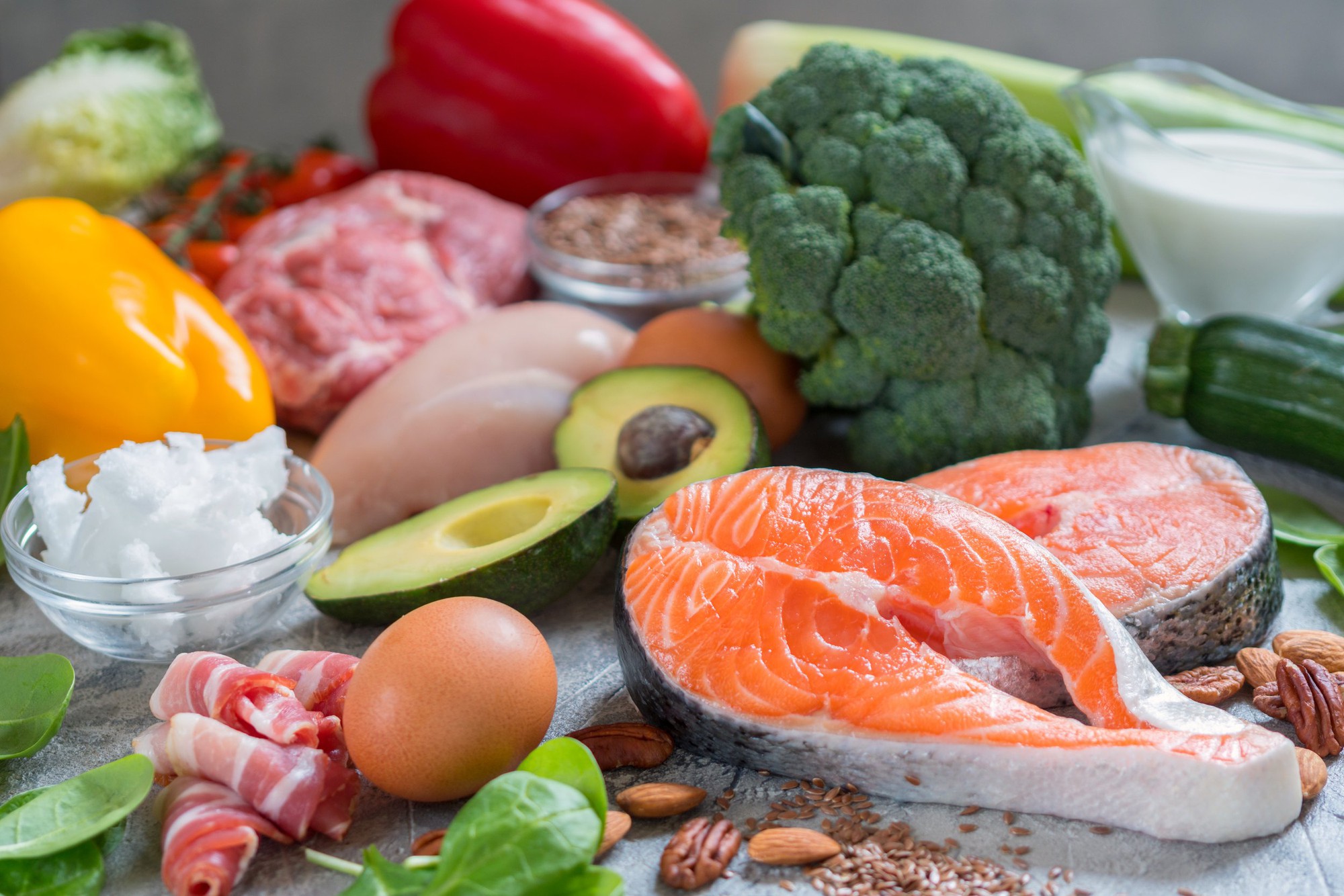
Diet is very important for people with ovarian cancer.
According to the US Centers for Disease Control and Prevention (CDC), many patients can live longer than the predicted survival rate from the time of diagnosis due to appropriate diet and lifestyle.
During ovarian cancer treatment, the body faces many challenges, including side effects from treatments such as chemotherapy and radiation. Proper nutrition helps the immune system function better, which is important for fighting infections, supporting recovery, and managing side effects. Consuming adequate calories, protein, and essential nutrients to provide the body with the necessary energy and building blocks for tissue repair and recovery has the following effects:
- Helps patients improve resistance, supports the body against the harmful effects of chemotherapy, radiotherapy, and surgery.
- Maintain a healthy weight, reduce the risk of malnutrition and muscle loss.
- Improve overall health, help patients recover faster after treatment.
- Reduce side effects of treatment such as nausea, vomiting, diarrhea, constipation,...
- Improve mood and spirit, help patients optimistically face illness.
2. Some essential nutrients for ovarian cancer patients
According to the recommendations of specialists at the Central Cancer Hospital, ovarian cancer patients should add some foods to their daily menu to ensure a balanced diet with all food groups:
Protein: Foods rich in protein. Especially milk and milk products.
Choose lean protein foods such as chicken and lean red meat (in moderation), fish, eggs, nut butters; legumes (such as lentils, beans, soybeans, tofu, peas) and nuts (if tolerated)... because they help provide energy, build and repair tissue, and support the recovery process after treatment.
Calcium: Milk and dairy alternatives such as Greek yogurt, cottage cheese, milk or milk alternatives, and low-fat cheese in moderation (many dairy foods are also good sources of protein).
Fruits and vegetables: Prioritize fruits rich in antioxidants such as vitamin C, beta-carotene, etc. to help prevent the development of cancer-causing free radicals, improve immunity, and enhance natural resistance. Prioritize eating fruits and vegetables in fresh or lightly steamed form to preserve nutrients. Supplement fresh vegetables and dark green vegetables containing many vitamins and minerals.
Starch: Starch helps boost metabolism for people with ovarian cancer. Whole grains (if tolerated) such as oatmeal, quinoa, barley, wild rice, brown rice, whole wheat pasta, whole grain bread and starchy vegetables, including sweet potatoes, potatoes, peas, pumpkin... these foods provide a lot of fiber, help improve the digestive system, reduce the risk of constipation, create a feeling of fullness for a long time.
Healthy fats: Omega-3, olive oil, nut butter, avocado, nuts (if tolerated) help reduce inflammation, improve mood…
Water: Drink plenty of water, 1.5 - 2 liters per day. Adequate water is especially important during treatment. Patients need to drink enough water and other fluids such as fruit juice, vegetable juice, etc. to protect the kidneys and bladder during chemotherapy and radiotherapy.
Ovarian cancer patients and caregivers should note that if the patient experiences certain side effects such as diarrhea or is at high risk of intestinal obstruction, high-fiber foods are generally not recommended. Vitamin and mineral supplements should be taken under the guidance of a physician. In addition, it is necessary to consult a doctor or nutritionist to have the most appropriate diet for your health condition.
3. Foods that ovarian cancer patients should eat and avoid
Foods to eat
Broccoli: Broccoli contains isothiocyanate, indole-33 carbinol, which has the ability to prevent ovarian cancer cells from growing.
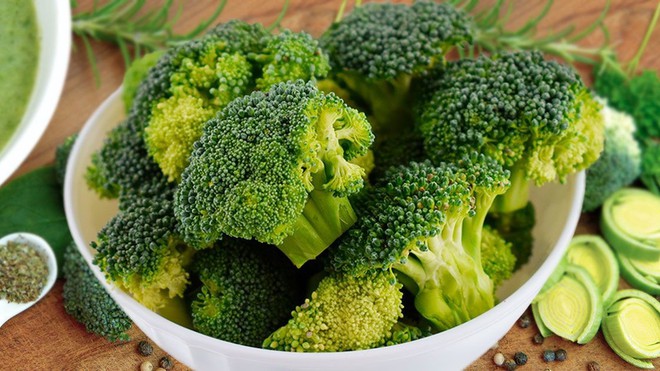
Broccoli contains substances that can prevent the growth of ovarian cancer cells.
Cruciferous vegetables: Cruciferous vegetables contain large amounts of certain phytochemicals, called glucosinolates. During the processing and consumption of cruciferous vegetables, glucosinolates break down into isothiocyanates. These compounds have anti-cancer properties and affect the metabolism of carcinogens, hinder tumor formation, inhibit inflammatory mediators, and activate the immune defense system.
Spinach: Spinach is also one of the cruciferous vegetables that are good for ovarian cancer patients. The minerals zinc, magnesium, and potassium in spinach help boost the body's immunity and prevent tumor growth.
Sweet potatoes: Sweet potatoes contain carotenoids - a natural organic pigment found in plants, which is an antioxidant that helps prevent the formation and development of ovarian cancer.
Potatoes: Potatoes contain antioxidant polyphenols, which are effective in preventing the growth of cancer cells.
Chicken: Is one of the foods rich in protein, low in fat, good for cancer patients, especially patients who are weakened after ovarian cancer treatment. In addition, chicken is also rich in selenium and niacin (vitamin B3), which helps improve the body's metabolism, supporting the fight against cancer cells.
Fish: Fish is a high-energy food, providing nutrients as well as boosting immunity for ovarian cancer patients. Patients should eat 2-3 fish meals per week in addition to other foods.
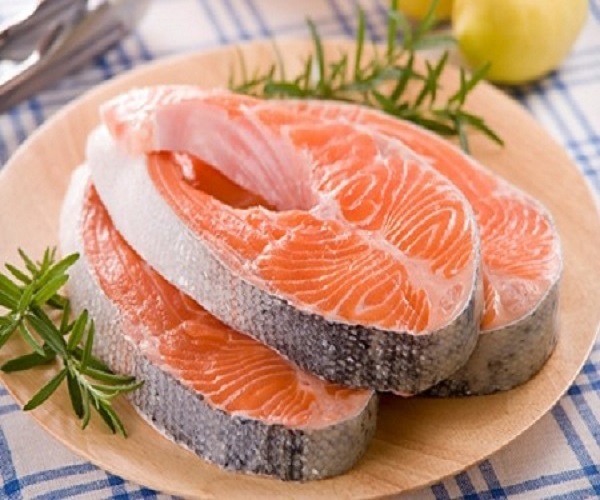
Fish is good food for ovarian cancer patients.
Cereals: Contain a lot of fiber, vitamins, minerals, antioxidants. Ovarian cancer patients can use cereals such as barley, wheat, soybeans... to supplement energy and help improve physical condition. Studies also show that cereals contain substances that can reduce the risk of ovarian cancer such as phytochemicals.
Nuts: Almonds, walnuts, chia seeds... contain many beneficial fats such as omega-3 which help absorb fat-soluble vitamins (vitamins A, D, E, K), good for cancer patients.
Fresh fruits and vegetables : Oranges, tangerines, kiwis, tomatoes, carrots... contain beta-carotene, vitamin C, good for ovarian cancer patients.
Ginger: This warm, spicy spice is an effective natural remedy for cancer prevention, helping to stop the growth of cancer cells in the ovaries.
Tea: Many research results show that tea is a drink that has good effects for people with ovarian cancer.
Foods to avoid
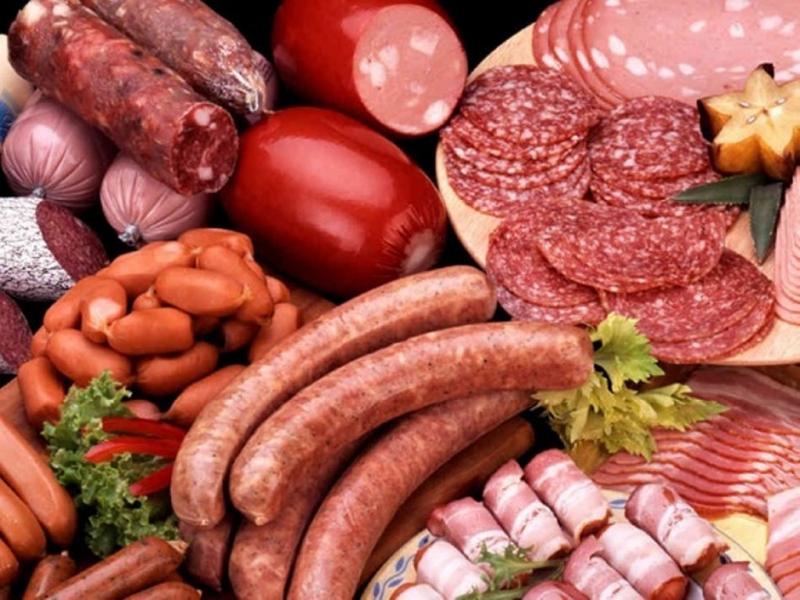
Processed foods are one of the foods that cancer patients should avoid.
When it comes to cancer, diet matters. Research shows that poor nutrition is linked to ovarian cancer, and dietary habits contribute to about 30% of cancers.
Avoiding the following foods may help support cancer prevention and better treatment outcomes:
Processed and cured meats: If you have ovarian cancer, you should avoid processed and cured meats such as hot dogs and cold cuts. Processed meats often contain additives, preservatives and nitrates, which have been linked to an increased risk of cancer.
Additionally, these meats are often high in saturated fat, which increases inflammation and negatively impacts overall health. Some studies suggest that chronic inflammation, a long-term immune response, may play a role in the development of ovarian cancer.
Sugary foods and drinks: By limiting sugar intake, you may create a less favorable environment for cancer cell growth.
Cancer cells have a high demand for glucose as an energy source. Consuming sugary foods and drinks leads to high blood sugar levels, which are favorable for cancer cell growth.
Consuming too many foods that are high in calories but low in nutrients can also lead to weight gain. Research shows that excess body weight is associated with an increased risk of various cancers, including ovarian cancer. Obesity also promotes chronic inflammation and insulin resistance, which promote the growth of cancer cells.
Refined Grains: Highly processed grain foods like white bread, white rice, and refined pasta have less nutritional value than whole grains. Refined grains also have a high glycemic index, which can cause blood sugar spikes.
Additionally, refined grains are often stripped of fiber and nutrients during processing. Adequate fiber intake is important for maintaining bowel regularity, supporting gut health, and promoting feelings of fullness.
Trans fats and fried foods: Foods high in trans fats, such as fried foods, baked goods, and some margarines, increase inflammation that can lead to oxidative stress, which occurs when there is an imbalance between harmful free radicals and protective antioxidants in the body.
Oxidative stress can cause cell damage and is linked to various diseases, including cancer.
Fried foods are often high in unhealthy fats, calories, and added sugars. Regular consumption of fried foods can contribute to weight gain and obesity, which are risk factors for many cancers, including ovarian cancer.
Undercooked fish and shellfish: During cancer treatment, the immune system's ability to fight germs can be compromised, leaving the body ill-equipped to fight bacteria, parasites, and viruses that may be present in raw or undercooked foods such as raw fish and shellfish.
Drink alcohol
According to a study in the Journal of Cardiovascular Disease Research, drinking a lot of alcohol every day is not good for cancer prevention in general. Any type of alcohol increases the risk of cancer.
4. Notes on digestive problems for ovarian cancer patients
If ovarian cancer and cancer treatment cause digestive problems that affect digestion and cause poor appetite, consider the following tips:
Bloating and gas: Try drinking smoothies, eating high-calorie snacks, and eating smaller, more frequent meals to avoid bloating. Additionally, drinking peppermint or chamomile tea can help reduce bloating and stomach pain.
Indigestion: Do not eat before going to bed and sit up straight when eating.
Constipation: Drink plenty of water, eat lots of fruits and vegetables, eat soft, easily digestible foods and exercise regularly.
Diarrhea: Replace lost fluids, eat small frequent meals, avoid fried, spicy foods, and get plenty of rest.
Reduced appetite: Eating small portions of high-calorie snacks, such as smoothies, more frequently may help someone with a loss of appetite.
Nausea: Individuals can eat smaller meals more frequently, choosing foods and dishes that are easy to digest such as soup.
Source: https://giadinh.suckhoedoisong.vn/che-do-an-cho-nguoi-benh-ung-thu-buong-trung-172240621163223973.htm




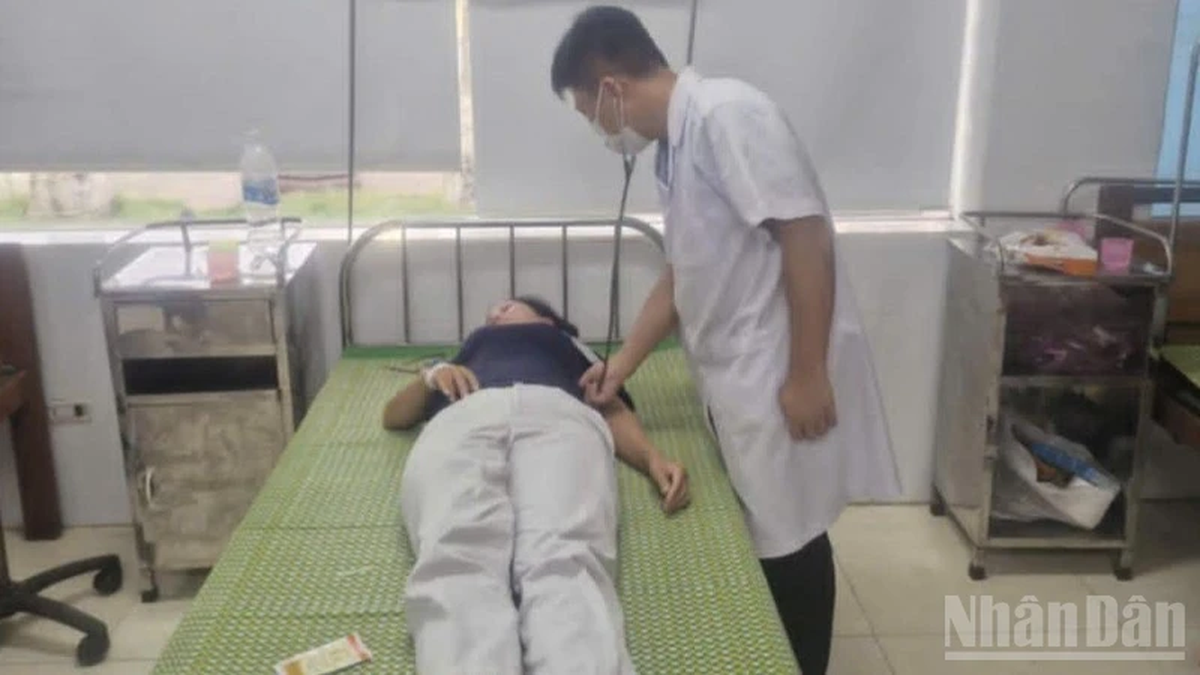


















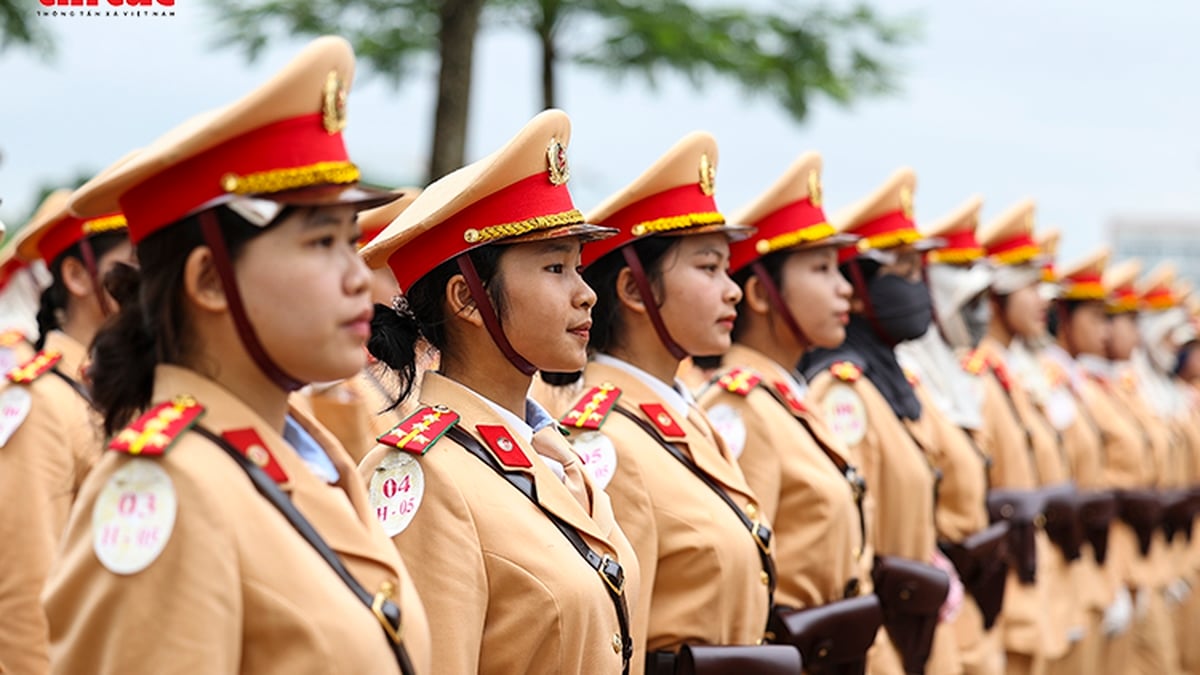













































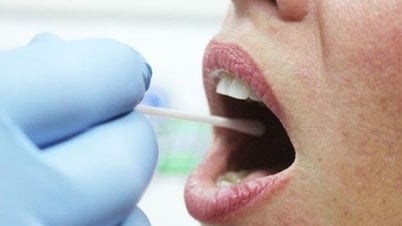

























Comment (0)